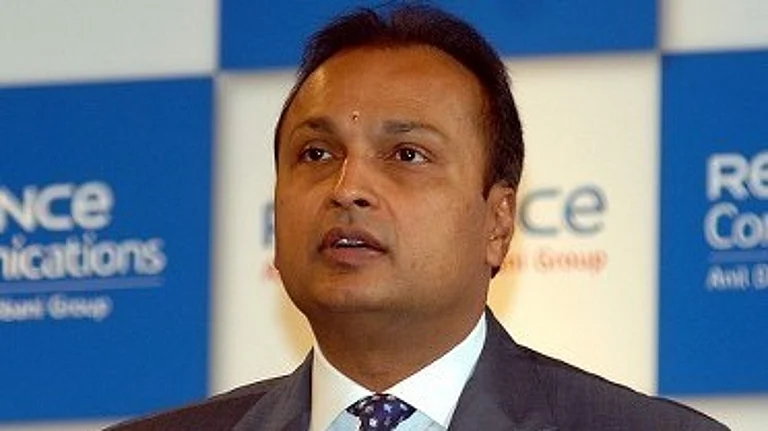The Enforcement Directorate has summoned Reliance Group Chairman Anil Ambani for questioning on August 5 in a money laundering case linked to alleged bank loan fraud worth crores of rupees against his group companies, official sources said on Friday.
Ambani, 66, has been asked to depose at the ED headquarters in Delhi as the case has been registered here, the sources said.
The agency will record his statement under the Prevention of Money Laundering Act (PMLA) once he deposes, they said.
Some executives of his group companies have also been summoned over the next few days.
The summons came after the federal agency conducted searches at 35 premises of 50 companies and 25 people, including executives of his business group, last week. The searches, launched on July 24, went on for three days.
The action pertains to alleged financial irregularities and collective loan "diversion" pegged at more than ₹17,000 crore by multiple group companies of Anil Ambani, including Reliance Infrastructure (R Infra).
The agency found, on the basis of a Sebi report, that R Infra "diverted" funds disguised as inter-corporate deposits (ICDs) to Reliance Group companies through a company named CLE. It is alleged that R Infra did not disclose CLE as its "related party" to avoid approvals from shareholders and audit panels.
Reliance Group sources said that the matter related to R Infra was publicly disclosed by the company on February 9 and it was not the SEBI which made a "independent" discovery (of the about ₹10,000 crore diversion of funds).
Reliance Infra had an exposure of ₹6,500 crore. The allegation that the diverted amount is ₹10,000 crore only serves to sensationalise the magnitude and is not based on facts, the Reliance Group sources said.
They added that Reliance Infra diligently pursued recovery of its dues in this matter.
Through mandatory mediation proceedings conducted by a retired Supreme Court judge and filed before the Bombay High Court, Reliance Infra arrived at a settlement to recover its entire exposure of ₹6,500 crore, they said.
The Odisha distribution companies contemplated in the settlement are operational, and their recovery is pending before the courts. This amount is fully recoverable, contrary to the allegations, the company sources said.
The ED is also looking at allegations of "illegal" loan diversion of around ₹3,000 crore, given by the Yes Bank to the group companies of Ambani between 2017-2019.
The ED, the sources said, has found that just before the loan was granted, Yes Bank promoters "received" money in their concerns.
The agency is investigating this nexus of "bribe" and the loan.
The sources said the ED is also probing allegations of "gross violations" in Yes Bank loan approvals to these companies, including charges such as back-dated credit approval memorandums and investments proposed without any due diligence/credit analysis in violation of the bank's credit policy.
The loans are alleged to have been "diverted" to many group companies and "shell" (bogus) companies by the entities involved.
The agency is also looking at some instances of loans given to entities with weak financials, a lack of proper documentation of loans and due diligence, borrowers having common addresses and common directors in their companies, etc., the sources said.
The money laundering case stems from at least two CBI FIRs and reports shared by the National Housing Bank, SEBI, National Financial Reporting Authority (NFRA) and Bank of Baroda with the ED, they had said.
These reports, the sources said, indicate that there was a "well-planned and thought after scheme" to divert or siphon off public money by cheating banks, shareholders, investors and other public institutions.
The Union government had informed the Parliament recently that the State Bank of India has classified RCOM along with Ambani as 'fraud' and was also in the process of lodging a complaint with the CBI.
A bank loan "fraud" of more than ₹1,050 crore between RCOM and Canara Bank is also under the scanner of the ED apart from some "undisclosed" foreign bank accounts and assets, the sources said.
Reliance Mutual Fund is also stated to have invested ₹2,850 crore in AT-1 bonds, and a "quid pro quo" is suspected here by the agency.
Additional Tier 1 (AT-1) are perpetual bonds issued by banks to increase their capital base, and they are riskier than traditional bonds, having higher interest rates.
































